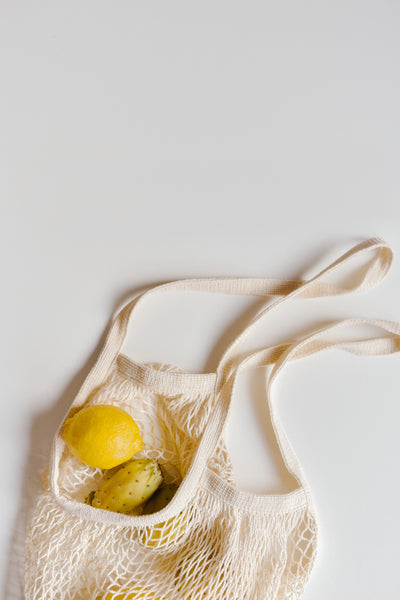It can be easy to scoot through the maze of life without pausing to think of how our everyday activities are impacting our lives year after year. Feeling like what you're doing has real meaning and that you can make a big difference in your life, makes waking up the most thrilling thing in the world every day. How we spend our days is, of course, how we spend our lives says Annie Dillard, the American author.
Start a dream journal: The most enjoyable part of an activity is often the anticipation. There is a tiny section of the brain in the back called the Reticular Activating System (RAS) that turns the awareness of ideas and emotions on and off and decides the lenses through which you look at the universe. When you jot down your goals, you take a step to influence your RAS to point out and participate in practices that will walk you a step closer to your hopes and aspirations. You are creating new connections in your brain that allow you to 'see' what you can do every day to enhance your well-being. Doing this consistently gives you better days.
Prioritize eco-friendly choices: Live sustainably basically means having a way of living that is best for the world. It's about taking little measures to look after Mother Earth. A good approach will be to start by saving water, driving less and walking more, consuming recycling goods, consuming locally grown food, joining conservation organizations to fight air pollution, producing less waste, planting more trees, and shopping responsibly.

Volunteer more: Just assisting with the simplest things will make a real difference to the life of individuals, animals, and organizations in need. Volunteering is a two-way street: it supports you and your family as well as the cause you want to help. Dedicating your time as a volunteer lets you make new friends, develop your career. Volunteering is beneficial for the body and your mind. The social interaction component of supporting and collaborating with others has a significant influence on your overall psychological well-being. Nothing relieves tension more than a real interaction with another human on a joint cause.
Adopt an attitude of gratitude: If you want to be grateful, get around people of that kind of character. Some people are already bubbling over with joy and appreciation for living. Once upon a time, I knew an older woman who was exuberant about life. She was in a nursing home and may have been complaining for hours. Instead, she invited me to her room and began asking me about the birds outside her window. She was very grateful for their company. As I listened to her, I realized that I wanted that special spark.
Spend 5 mins a day cleaning: Swiping the mop over the kitchen floor or giving the shelves quick dust can be as helpful to your mental health as meditation. For some of us, even having a clean and orderly house will help temporarily blur the impact of a busy day. Clutter can over-stimulate the senses, as it is often seen as an unfinished business. As a result, clumsiness will only limit our ability to concentrate on other tasks and impair our ability to focus. Not to mention there is also a great feeling of satisfaction and accomplishment in being able to tick all of those cleaning jobs off your 'Hinch list'.
Wake up at the same time daily: If you find your life is scattered, that your feelings are out of order and your emotions are boiling over, a schedule will help keep you focused, determined, and committed. Good practices will continually keep us focused and help to bring clarity to the transitions and difficulties that we can face in our lives. If we wake up at the same time every day, we will improve the circadian cycle and be prompted to sleep at the same time every night. Try and wake up at the same time every day for the next 40 days. If you are very optimistic, you can even want to eat at the same time every day and sleep at the same time every night. Ideally, you can get up and get out of bed by 7:00 a.m. and be back to relax by 10:00 p.m. If those hours don't fit for you, follow the routine that is right for you—consistency is the secret.

Develop a skincare regime: The research behind skincare goods has come a long way, but there's still no quick fix—you need the patience to enjoy the benefits, says Dr. Rachel Nazarian, Manhattan dermatologist at the Schweiger Dermatology Company. "Results are only shown by continuity. Think of your skin-care routine as consisting of three main steps:
Cleansing — Washing your face.
Toning — Balancing the skin.
Moisturizing — Hydrating and softening the skin.
"Beauty routines are an opportunity to notice changes within yourself," says San Francisco skincare expert Kristina Holey. As your skin needs to improve with age, so will your beauty products. "It's not about creating perfection." Encourage these three steps to become your everyday routine that improves your skin and brings life to your day.
Live simply consume less: The thought of doing more of the things that matter most to you can be overwhelming. Your schedule is overplanned, or your room is packed with things that don't benefit you and your family, minimalism will help you create more space in your life. Space to take greater chances, pursue something different, or just spend more time with the ones you care for. Over time, minimalism will actually help you create drastic lifestyle changes, such as moving to a new place, shifting professions, or pursuing entrepreneurship.
Perfect one recipe: Becoming a better cook is a lifelong journey. Once you're at the point of masterfully whipping up that perfect cheesecake at home—perfecting the timing, measuring temperatures, comfortably correcting problems—you're able to start designing your own dishes. . In short, the better we get, the bigger the challenges that we seek.
Set up a monthly budget: You can ease the budgeting process by using percentages of your earnings for capital expenditures, investments, and money spent. Then you're just watching the money when you use it. Bear in mind: the first three months of budgeting are a little more complicated when you change your categories to find the sums that fit with your scenario. Budgeting will help you develop a sense of control over your finances. It helps you to plan your expenses, watch how you're doing, and know what you need to stop. It sets in motion a strong plan that is easy to execute and allows you to plan and prepare for the future.

Try something new: Take a class on a topic that is not relevant to your work, culture, or family—something you've always been involved in, but never made time to pursue. Go to a different restaurant, preferably an ethnic restaurant, and try something else on the menu. Go to work differently: ride a bus, cycle, catch a train, use Uber or a carpool, or even take dancing lessons: tango, swing… Just do something for the first time! When we try something new, such as learning a new skill, our brains and bodies are challenged. Once stagnant or underused neurotransmitters or muscles are shocked and put to use. Our bodies and brains thrive on the attention, and we feel better as we put them into practice.
Take breaks often: A recent body of multidisciplinary study indicates that strategic renewal—including day-to-day exercises, quick daytime naps, longer sleep hours, more time away from the workplace, and longer, more regular vacations—increases efficiency, job results and, of course, wellbeing. the right kind of breaks can counter these negative effects. Good breaks reduce mental fatigue, boost brain function, and help us stay focused.
Practice intentional breathing: Place one hand on your chest and one hand on your abdomen. This will allow you to feel your abdomen move as you breathe. Breathe in slowly and deeply through your nose, letting the air fill your lungs and abdomen. Slowly exhale through your nose or mouth. Repeat 3 to 5 times, or until you establish a slow, regular breathing pattern.
Ditch one bad habit: Don't you like the way these situations are played out? Then move out of your worst practices and make sure you're satisfied. All it takes is some sort of applied emphasis. If you neglect good habits for lazy sofa time or fast food, you do not presume to be healthy. There are at least 15 action measures you can take to make you quit any bad habit. Place some time in this and think about it. It may sound easy to come up with action measures, but they have to be tailored by you, acts that you feel are beyond the sphere of action. Don't count the things you know you're not going to do with your heart.
Create a bedtime routine: Routine implies safety. “Most of us cannot sleep on command, but routine helps the brain know that it’s preparing for sleep,” says Rebecca Scott, research assistant professor of neurology at the NYU Langone Comprehensive Epilepsy Center—Sleep Center. Give yourself the opportunity to decompress your day. Take a warm bath two or three hours before bedtime. Do something that you particularly like and find enjoyable. You might spend some time with family, take a "me" break, read or even meditate with your favorite scented candle.

Make time for self-care: Selfcare is how you take your power back. Self-care is a multiplier of time. When you take time, whether it's five minutes for a brief meditation, 10 minutes for meal preparation for the next few days, or a whole hour of yoga, you develop energy and concentration. And if you're already persuaded that you need to find time for yourself to finally use these soothing makeup items, sit down for reflection, or take a second to a diary, it can always be hard to get it done.
Embrace spontaneity: Spontaneity is where memories are made; connections are forged-and they have always been worth it. Don't let the fear of the unplanned get in the way. Recognize the wave of chance and let spontaneity flow! Remember-Magic can happen!
Clean that avalanche of emails: Psychologists correlate cleanliness and mental ease and the same applies to your inbox. Managing the inbox is an underestimated virtue in the office. A backlog of unfinished emails creates a 'psychological pull' that slows down our mental clarity and focus. A cluttered inbox stems from a lack of decision-making and procrastination. In the face of an enormous amount of choices to make, we prefer to procrastinate and make no decisions at all. Moreover opting out of unwanted subscriptions might have more benefits than just having a clean inbox.
Complete a no spend month: Going on a month-long financial sprint (detox, freeze—whatever you like to name it) will not only slow down the drain on your bank account, it will even help you concentrate on your main financial weaknesses. The "no-spending month"—where you stop paying cash on anything but the bare essentials—has become extremely popular among financial blogs and social networking followers. make a list of non-negotiable expenses—like rent or mortgage payments, utilities, medication, and insurance. Then set aside cash for essentials. Spending is also about emotional gratification, cutting that off requires practice. If you find that you can't do it, just stop and try to start all over again maybe with a more achievable goal this time.
Do a little act of kindness weekly: Little, or not so small, deeds really make a difference in the world and the lives of others. The more people commit to these acts of kindness, the more exponential is the effect due to its infectious aspect. Contact a friend or family member for no reason other than talking, pay a toll on the car behind you, pay for the meal of someone in the store, buy a cup of coffee for somebody, let someone cut down on the traffic. There are a thousand ways to scatter the confetti of joy.
Reduce debt: You don't have to cancel or break your credit cards. But you could always tuck them in a safe location and not use them to make any more transactions until you have repaid your existing debt. Cut back on items like going out and other optional shopping. Pay off as much of your debt per month. At least pay the full amount you owe on each loan. It is going to secure your credit scores.
Start with one, and if you feel like you've got the hang of it, pick up another one. There's no limit on how many good changes you can make in your life, but you've got to start somewhere!


Leave a comment